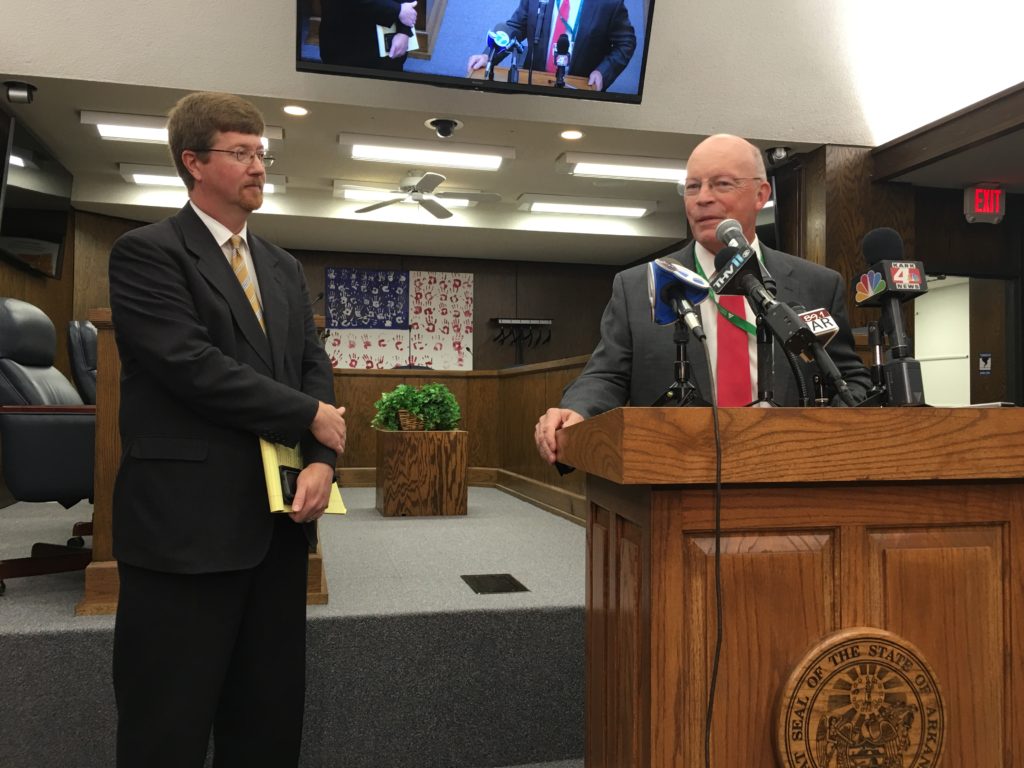By Steve Brawner
© 2016 by Steve Brawner Communications, Inc.
Brent Dove of Rea Valley, state director of the Convention of States, said something really smart or at least interesting about the effort he leads in Arkansas – that it will gain momentum when people realize how little the election changed.
The Convention of States is a national effort to use a provision in the Constitution’s Article V allowing states to call a convention to amend that document.
All 27 of the Constitution’s previous amendments have been initiated through Congress, but Convention of States organizers believe the changes they want – term limits, a balanced budget amendment, a limit on government’s power – will never happen that way.
Every constitutional amendment faces an uphill battle, and this process would be a cliff, which is why it’s never happened in American history. Thirty-four states must approve an identical resolution and then send delegates to the convention, and then a majority of the delegations must agree to proposed amendments, and then 38 states must approve those amendments.
Eight states have approved the resolution. In Arkansas, it failed in 2015 in a Senate committee, but supporters will introduce it again in 2017. Former Oklahoma Sen. Tom Coburn, a Republican, told about three dozen Arkansas supporters Nov. 1 that the goal is to increase the number of states passing resolutions and build pressure on Congress to enact changes before the convention even happens.
It’s going to be tough to get 38 states to agree on anything these days, and that includes the Convention of States’ goals. The resolution would advance policies that are undeniably conservative in a country that is split in two and, if anything, moving left. Moreover, since its creation, the group has faced opposition from conservatives who fear a rogue convention that radically alters the Constitution – as if anything really radical would ever gain the approval of 38 states.
Where the convention gets it most right is the idea, voiced by Dove, that at this point in history, systemic change is needed.
The country’s political systems have evolved in ways that the Constitution doesn’t address, making it no longer a “living document” but instead an ignored one. The Constitution did not envision parties; clearly, partisan politics is how the system works. The Constitution’s checks and balances aren’t functioning properly because the humans who serve in Congress have too much allegiance to their party and not enough to their branch. The writers of the Constitution did not envision elected office would be a gigantic, full-time, sometimes lifetime industry based on legalized bribery, I mean campaign donations. The Constitution correctly gives Congress the power to tax and spend but has no provision requiring the numbers to eventually come into balance. Therefore, it rarely happens.
It’s time to reset the nation’s constitutional framework so that it can be relevant again – for example, so that it takes into account the now-obvious fact that political parties inevitably exist in a democracy. Either we can turn around the political system’s train and make it align perfectly with the Constitution’s original text, or instead, we can build new tracks and send the train to a destination it can actually reach.
Besides, very deep holes in the nation’s founding document have been filled before. It originally left out freedom of speech and religion, it allowed slavery, and it made it possible to deny African-Americans and women the right to vote. So I think the republic will survive a spirited debate about term limits.
Dove said that if 34 states can agree to the resolution, then at least that conversation can occur. While I have some doubts about whether the group can achieve its goals, I’m ready to have that conversation. It does matter who won on Tuesday, but systems usually change people more than the other way around. So after 18 months of talking a lot about what’s wrong with the people, let’s talk about tweaking the system.


